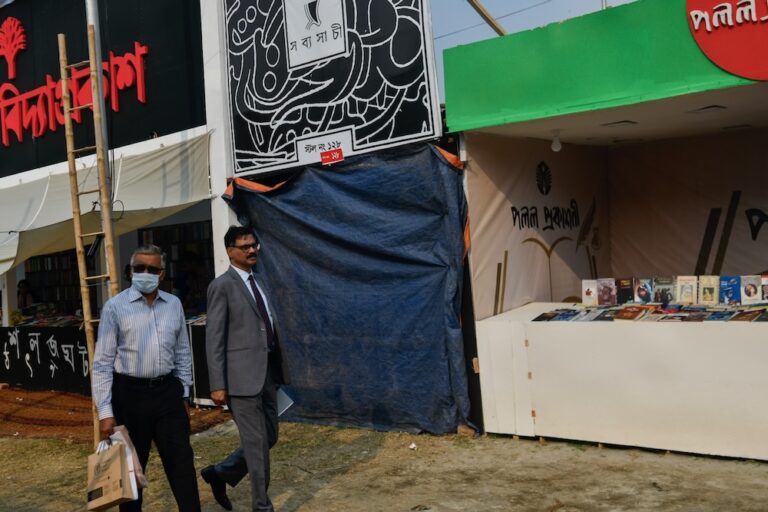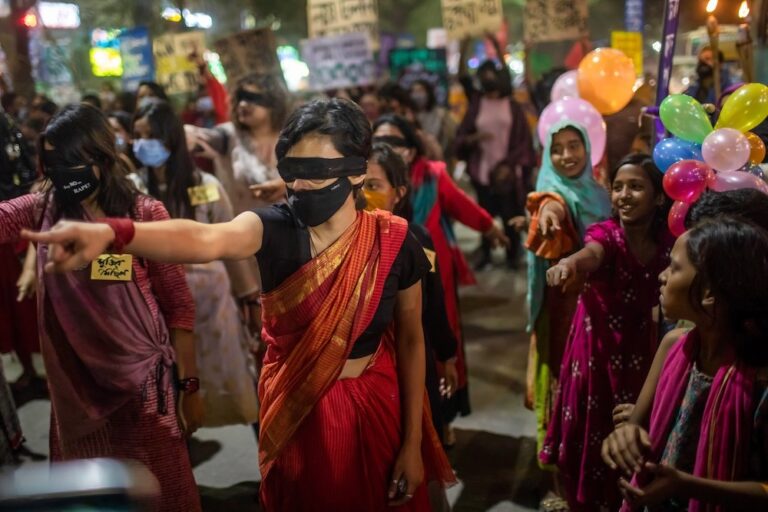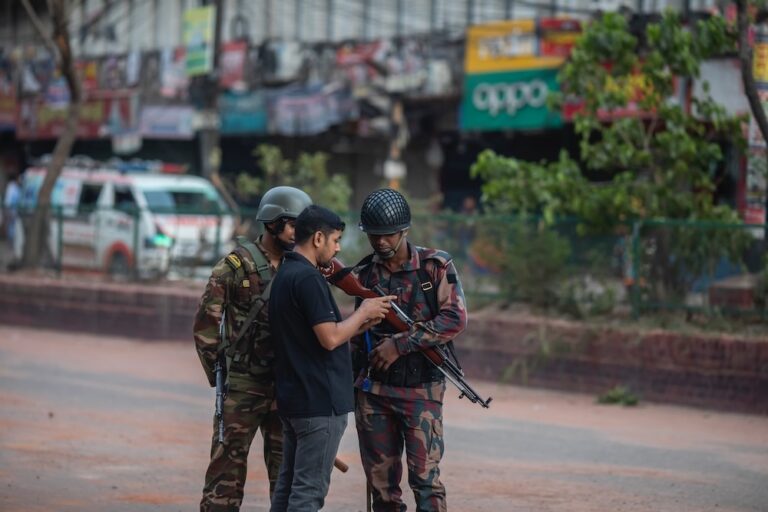Authorities ordered the indefinite closure of all universities, and there are reports of internet and cellular shutdowns being imposed across the country.
This statement was originally published on pen-international.org on 19 July 2024.
At a time of civil unrest, journalists play a vital role in promoting accountability and transparency by monitoring and reporting on protests. We condemn the violence and urge the Bangladesh government to ensure that journalists are protected and can exercise their right to freedom of expression unimpeded’, said Ma Thida, Chair of PEN International’s Writers in Prison Committee
As student-led protests continue to take place across Bangladesh, PEN International expresses its alarm over the escalation of violence, including reports of journalists being assaulted, with at least two killed while covering the protests. The organisation calls on the Bangladeshi authorities to protect journalists and end their internet shutdown, ensuring that any public safety measures undertaken are consistent with the government’s international human rights obligations, including the right to freedom of expression.
Amidst a backdrop of high youth unemployment, students have held rallies across Bangladesh for several weeks demanding an end to a quota system for public sector jobs, which protestors view as being discriminatory and beneficial towards supporters of the ruling Awami League party, and calling for its replacement with a merit-based system.
Measures taken by government authorities to quell the protests have included the deployment of armed riot police and paramilitary forces to university campuses, which have led to violent clashes between student protestors and security forces along with pro-government activists.
On 17 July, Bangladesh’s government ordered the indefinite closure of all universities, and there are reports of internet and cellular shutdowns being imposed across the country. PEN International notes that any such restriction must be implemented in accordance with the fundamental norms of necessity and proportionality. The use of blanket communications blackouts result in the indiscriminate and disproportionate limitation of the right to freedom of expression for those affected. As stated by the United Nations Office of the High Commissioner for Human Rights, blanket internet shutdowns ‘impose unacceptable consequences for human rights and should never be imposed’.
As the violence has continued to escalate in recent days, reports have emerged of security forces engaging in unlawful force against protestors, with at least 30 reported to have been killed. Included among the thousands injured during the clashes are over 25 journalists, and there are alarming reports that two journalists, Hasan Mehedi, a staff reporter at Dhaka Times and Mohammed Shakil Hossain, a correspondent for the Daily Bhorer Awaj, have been killed. On 18 July, reports have also emerged that protestors have stormed the headquarters of state broadcaster Bangladesh Television (BTV), setting parts of the building on fire. BTV has since been taken offline and several other news outlets, including Dhaka Tribune and The Daily Star remain inaccessible at time of publication.



